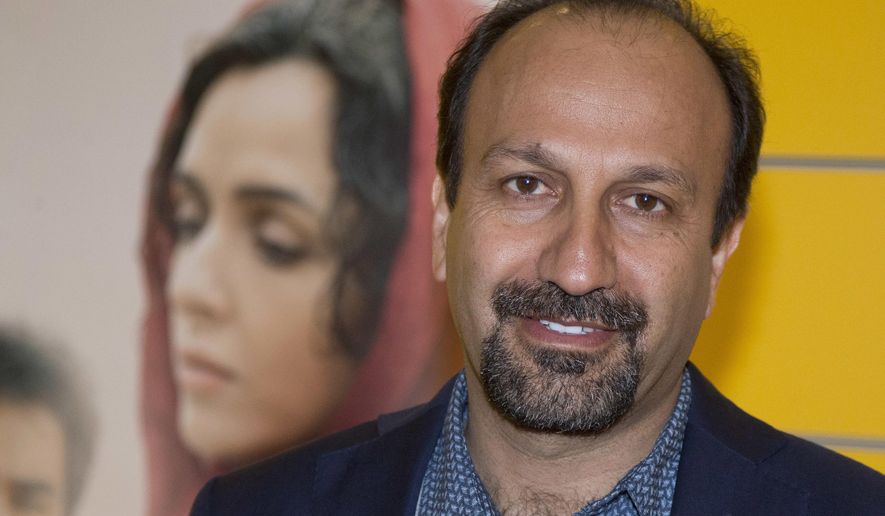Iran won the best foreign-film at Sunday night’s Oscars, but the director wasn’t there to accept the prize. And he was not happy about that.
Asghar Farhadi, director of “The Salesman,” had said in advance that he would not attend the ceremony to protest the Trump administration’s extreme vetting order, which was aimed at Iran and six other majority-Muslim and terror-prone countries.
Instead, Mr. Farhadi sent a surrogate — Anousheh Ansari, an Iranian-American engineer and the first female space tourist — to accept the award and read a prepared statement.
“My absence is out of respect for the people of my country and the other six nations that have been disrespected by this inhumane law that bans the entry of immigrants to the U.S.” Ms. Ansari read on Mr. Farhadi’s behalf, prompting a round of applause from the packed auditorium.
Mr. Farhadi’s statement also denounced politicians — without specifying Mr. Trump — “who divide the world” into “us and our enemies” and provide a pretext for “aggression and war” that he said can “prevent democracy and human rights in countries which have themselves been victims of aggression.”
According to the statement, film-makers can create empathy for others and unite people across political divides, prompting further applause.
Commentary editor John Podhoretz wasn’t as enthusiastic, saying on Twitter that “this statement would be so much better if it didn’t come from a man who lives in the most anti-Semitic country in the world.”
“Getting lectured on unjust laws by someone who has to negotiate the politics of a mullahcracy is pretty staggering,” Mr. Podhoretz continued, later going on to say that Mr. Farhadi “makes great movies.”
While several of Iran’s most prominent film-makers have been jailed or exiled, Mr. Farhadi has stayed and worked within the country’s system, making films that shy away from overt politics. Nevertheless, his films are often covertly critical of the regime, of Islamist elements in Iranian culture, or those in Iran who most enthusiastically back it.
Ironically, “The Salesman” is centered around American culture — the two lead characters are a married couple who are also playing the lead roles in a Tehran production of the Arthur Miller stage classic “Death of a Salesman.”
Although Mr. Trump’s immigration rule has been blocked by U.S. courts and exceptions could have been made in any event, Mr. Farhadi said beforehand that he would not attend the ceremony rather than submit to any such processes.
Mr. Farhadi won the foreign-film Oscar five years ago, for his film “A Separation,” the first win for Iran in that category.
He used his speech then, in person in Los Angeles, to say both that cultural events offered an alternative to political hostility and to implicitly criticize the Islamic Republic as putting forth a bad face to the world.
“At this time, many Iranians all over the world are watching us and I imagine them to be very happy. They are happy not just because of an important award or a film or filmmaker, but because at the time when talk of war, intimidation, and aggression is exchanged between politicians, the name of their country Iran is spoken here through her glorious culture, a rich and ancient culture that has been hidden under the heavy dust of politics. I proudly offer this award to the people of my country, a people who respect all cultures and civilizations and despise hostility and resentment.”
Before the ceremony, all five nominees in the category released a statement condemning “the climate of fanaticism and nationalism in the U.S.,” saying the winner would dedicate the prize to those working toward unity.
“We believe there is no best country, best gender, best religion or best color. We want this award to stand as a symbol of unity between nations and the freedom of the arts,” the directors said in the statement.
Besides Mr. Farhadi, the four directors were Martin Zandvliet, (“Land of Mine,” Denmark); Hannes Holm (“A Man Called Ove,” Sweden); Maren Ade, (“Toni Erdmann,” Germany), and Marin Butler and Bentley Dean, (“Tanna,” Australia)
• Victor Morton can be reached at vmorton@washingtontimes.com.




Please read our comment policy before commenting.